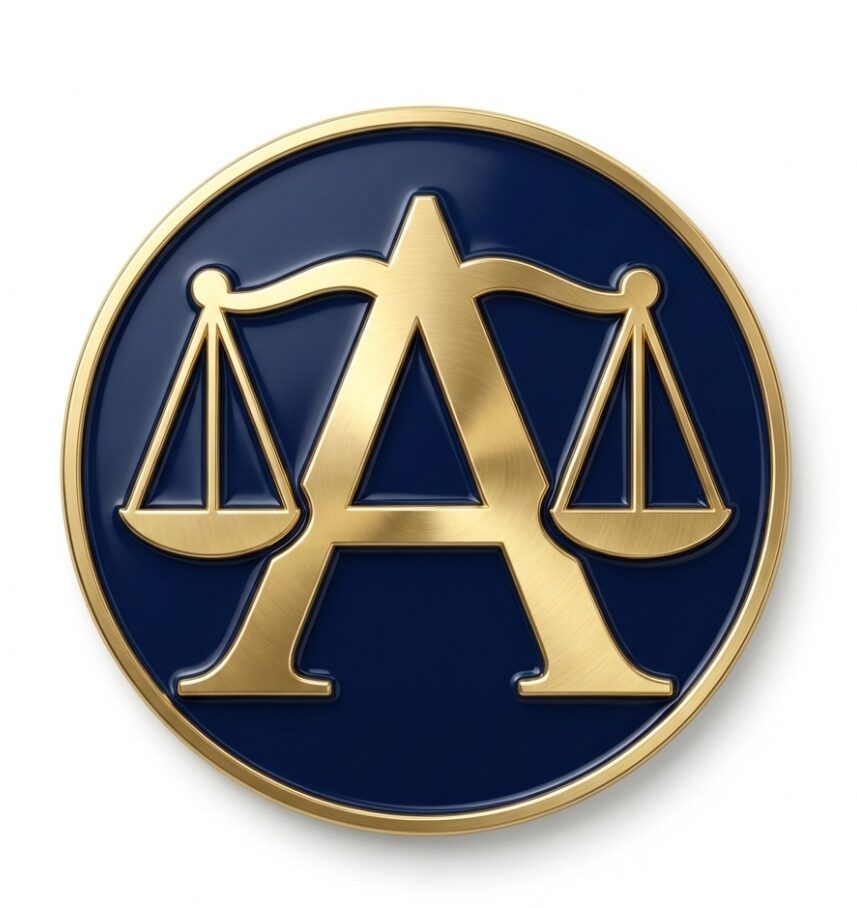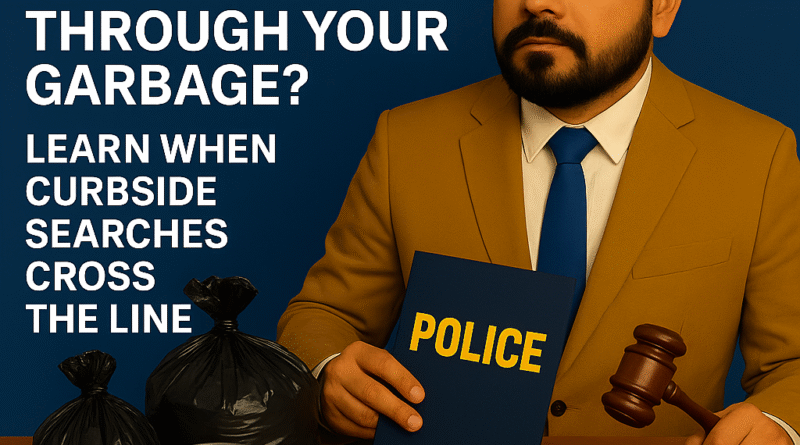Trash Pulls & Greenwood: Can Police Dig Through Your Garbage? Learn When Curbside Searches Cross the Line
Understand when police can search your trash at the curb, what Greenwood allows, and how to protect privacy and challenge bad pulls.
If you came here wondering whether officers can quietly grab your garbage bags, tear through them, and use what they find against you, you are not alone. “Trash pulls” look simple, but they sit at the intersection of privacy, procedure, and strategy. In this guide, we break down California v. Greenwood, show when curbside trash is fair game, where the limits are, and how prosecutors, officers, and defense attorneys should handle garbage evidence without throwing away the Fourth Amendment.
What Greenwood decided: curbside trash and the loss of privacy
In California v. Greenwood (1988), police asked the trash collector to pick up the defendant’s garbage and turn it over instead of taking it to the dump. Officers found drug evidence, used it to get a warrant, and the Supreme Court upheld the search. The Court’s core reasoning: once trash is left for collection in an area accessible to the public, individuals have no reasonable expectation of privacy in its contents.
Key points from Greenwood:
- Garbage placed at the curb for collection is “knowingly exposed” to the public — animals, passersby, scavengers, and the trash hauler.
- Police do not need a warrant or probable cause to obtain and search that curbside trash, so long as it is outside the home’s protected area (curtilage) and lawfully accessible.
- Evidence found in a lawful trash pull can be used to establish probable cause for a later warrant targeting the home, vehicles, or devices.
- Curbside trash outside the curtilage = generally no Fourth Amendment protection.
- Lawful access + voluntary placement for collection = warrantless search allowed.
- Location and local ordinances can change the analysis.
Modern variations: location, contracts, and high-volume trash surveillance
Greenwood is not a blank check. Courts scrutinize where the trash was taken from, who handled it, and how often police use the tactic.
- Location matters: Trash inside a fenced yard, next to the back door, or clearly within the home’s curtilage is more protected. Reaching behind barriers, entering side yards, or ignoring “no trespassing” signs can turn a trash pull into an unlawful search.
- Collector cooperation: Having the regular garbage service hand over bags from the curb usually falls within Greenwood. But compelling private actors to seize trash from non-public areas or to act as government agents can trigger constitutional issues.
- Mass or repeated pulls: Long-term, systematic trash surveillance may raise heightened privacy concerns, especially where aggregation of DNA, medical information, or intimate data is involved.
- DNA and bio-data: Using items from trash (cups, tissues) to obtain DNA has been widely upheld, but is increasingly challenged as technology reveals far more than Greenwood contemplated.
How to handle trash pulls in real cases: step-by-step
- Confirm the exact placement. Was the trash on the curb, sidewalk, alley, or in a shared dumpster, or was it inside a yard, behind a gate, or up against the house?
- Document who removed it. Regular sanitation crew? Officers themselves? Landlord or neighbor? Their status affects whether they act as government agents.
- Link pulls to warrants carefully. For law enforcement, trash evidence should be corroborative, not the sole foundation for invasive warrants when reliability is questionable.
- Respect local law. Municipal codes or state constitutions can grant greater privacy than Greenwood; ignoring them risks suppression.
- Defense: attack process and context. Challenge location, trespass, timing, chain of custody, and whether the trash truly showed what officers claim.
Advanced angles: state protections, contracts, and digital-era concerns
Several lines of argument push beyond Greenwood:
- State constitutions: Some states interpret their own privacy clauses more broadly, requiring warrants or limiting government use of trash in ways the federal baseline does not.
- Service contracts & expectations: Defense may argue that exclusive arrangements with trash companies and sealed containers create a stronger expectation of privacy, especially in gated or controlled communities.
- Data-rich trash: Modern refuse includes shredded documents, pill bottles, financial statements, and genetic material. As with digital data in Carpenter, courts may grow more cautious about unrestricted mining of such information.
- Pretext and harassment: Serial trash pulls as pressure tactics — with thin results — can bolster arguments of bad faith, selective enforcement, or unreasonable intrusion.
| Scenario | Protection | Notes |
|---|---|---|
| Bags on public curb for pickup | Low | Classic Greenwood; pulls usually upheld. |
| Trash behind fence/inside yard | High | Within curtilage; warrant or consent generally needed. |
| Shared dumpster in open lot | Low/Medium | Often no expectation of privacy; context matters. |
| Repeated pulls plus DNA profiling | Medium/High | Legally contested; raises enhanced privacy concerns. |
Examples / Model snippets
- Warrant affidavit use: “Officers lawfully recovered trash bags from the curb directly adjacent to 123 Main St., containing mail addressed to the suspect and baggies with meth residue, supporting probable cause.”
- Suppression motion theme: “Police entered a gated side yard and removed bags from behind a locked fence, far beyond Greenwood’s curbside rule, making the trash search unconstitutional.”
- Policy language: “Officers shall not cross fences, gates, or posted barriers to obtain refuse absent a warrant, consent, or exigent circumstances.”
Common mistakes
- Assuming any “trash” is searchable, regardless of whether it sits inside protected curtilage.
- Failing to document where, when, and how the trash was collected.
- Using ambiguous or contaminated trash evidence as the sole basis for a home warrant.
- Ignoring stricter state constitutional rules or local privacy statutes.
- Overlooking chain-of-custody issues that undermine reliability of the seized items.
Conclusion: Greenwood makes curbside trash a powerful investigative tool — and a recurring battleground. For law enforcement, the safest course is disciplined: limit pulls to truly public areas, record everything, and treat trash as one piece of a broader probable-cause puzzle. For defense, the opportunity is in the details: challenge location, access, policies, and the leap from discarded debris to invasive warrants. If your case hinges on a trash pull — whether as officer, prosecutor, or defendant — take a hard look before you bank on garbage. A targeted legal strategy can be the difference between evidence that sticks and a motion to suppress that sends it straight back to the curb.
- Curbside trash placed for collection in a publicly accessible area is generally not protected by the Fourth Amendment.
- Police may obtain and search that trash without a warrant if they do not trespass into the home’s curtilage.
- Trash evidence often is used to build probable cause for a later search warrant.
- Location, access, and state constitutional law can restrict or defeat Greenwood-based searches.
- Repeated or invasive trash pulls (DNA, medical data) raise heightened privacy and litigation risks.
FAQ — key questions on Greenwood and trash searches
1. Can police search my trash without a warrant?
Under California v. Greenwood, yes — if you left the trash for collection in an area open to the public (like the curb or alley) and officers access it lawfully.
2. What if the trash can is next to my house or behind a fence?
If officers must enter the home’s curtilage — fenced yard, side of house, porch, or gated area — to get the trash, Greenwood is far weaker and a warrant or valid exception is usually required.
3. Does it matter that I expected the trash company, not the police, to pick it up?
The Supreme Court held that placing trash out for collection exposes it to others, including the trash hauler; police may lawfully obtain it from them when it is in a public location.
Further reading:
4. Can evidence from my trash be used to get a warrant for my home?
Yes. Items like drug packaging, mail, or contraband remnants found in a lawful trash pull commonly support probable cause, especially when corroborated by other facts.
5. Are there situations where trash pulls are illegal even at the curb?
They can be unlawful if officers trespass, seize trash not yet placed for collection, target locations protected by stricter state constitutions, or act contrary to local privacy statutes.
6. What about DNA, medical, or highly personal information in trash?
Most courts still apply Greenwood, but the use of genetic and sensitive data from trash is increasingly challenged as inconsistent with modern privacy expectations.
7. How can defense counsel attack a trash pull?
By contesting where the trash was located, whether officers trespassed, how it was collected, chain of custody, reliability of items, and whether state law provides greater protection.
Core legal framework and leading authorities
- Fourth Amendment, U.S. Constitution: protects against unreasonable searches and seizures; applies where there is a reasonable expectation of privacy.
- California v. Greenwood, 486 U.S. 35 (1988): holds that trash left for collection in a publicly accessible place is not protected; police may search it without a warrant.
- Curtilage doctrine (e.g., United States v. Dunn): defines the protected area immediately surrounding the home; crossing into this space to seize trash can convert a pull into an unlawful search.
- State constitutional provisions: some states (by case law or statute) recognize greater privacy in garbage, requiring warrants or limiting law enforcement access.
- Agency policies: many departments require documentation of location, method of collection, and compliance with local laws to ensure Greenwood-based searches withstand review.
Final considerations
Trash pulls are deceptively simple. Done correctly — from the true curb, with clear documentation — they are a powerful, Greenwood-backed investigative tool. Done sloppily — through fences, from porches, in states with stronger privacy rules, or with aggressive DNA mining — they invite suppression and civil liability. Officers and prosecutors should treat curbside garbage as one piece of corroboration, not a shortcut around warrants. Defendants and defense attorneys should scrutinize the map: inches matter when dividing public access from protected curtilage.
The information provided here is for educational purposes only and does not constitute legal advice or create an attorney–client relationship. Laws and interpretations vary by jurisdiction and evolve over time. Anyone involved in an investigation or case relying on trash searches should consult a qualified attorney to evaluate the specific facts and applicable local and federal law.
Do you have any questions about this topic?
Join our legal community. Post your question and get guidance from other members.
⚖️ ACCESS GLOBAL FORUM
